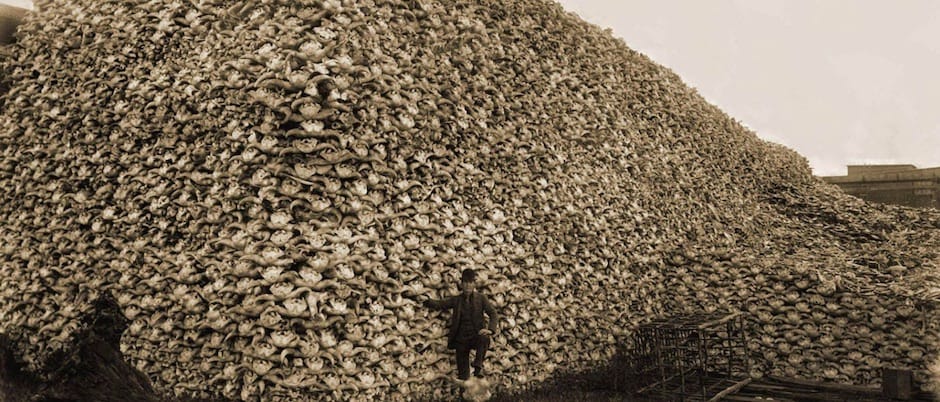The Non-Tragedy of the Bison Commons

Here’s an interesting economic analysis on the eradication of bison in the late 1800s.
The authors say that bison’s near-extermination was a rational economic process which did not constitute a “tragedy of the commons.” The tragedy of the commons is an economic theory of a situation within a shared-resource system where individual users, acting independently according to their own self-interest, behave contrary to the common good of all users by depleting that resource through their collective actions.
It is a good piece worth reading, which again proves that economics is not a science. (I intend no disrespect: Like Donald Trump I earned an economics degree from the Wharton School of Finance.)
Here is the science: Removing bison, the keystone species, from the North American grasslands imploded the ecology which rested on nomadic large grazers, diverse predators and abundant prey – all functioning in unison. All three parts of this have been under attack since the arrival of Europeans in North America, with devastating and tragic results for wildlife, habitat and mankind.
